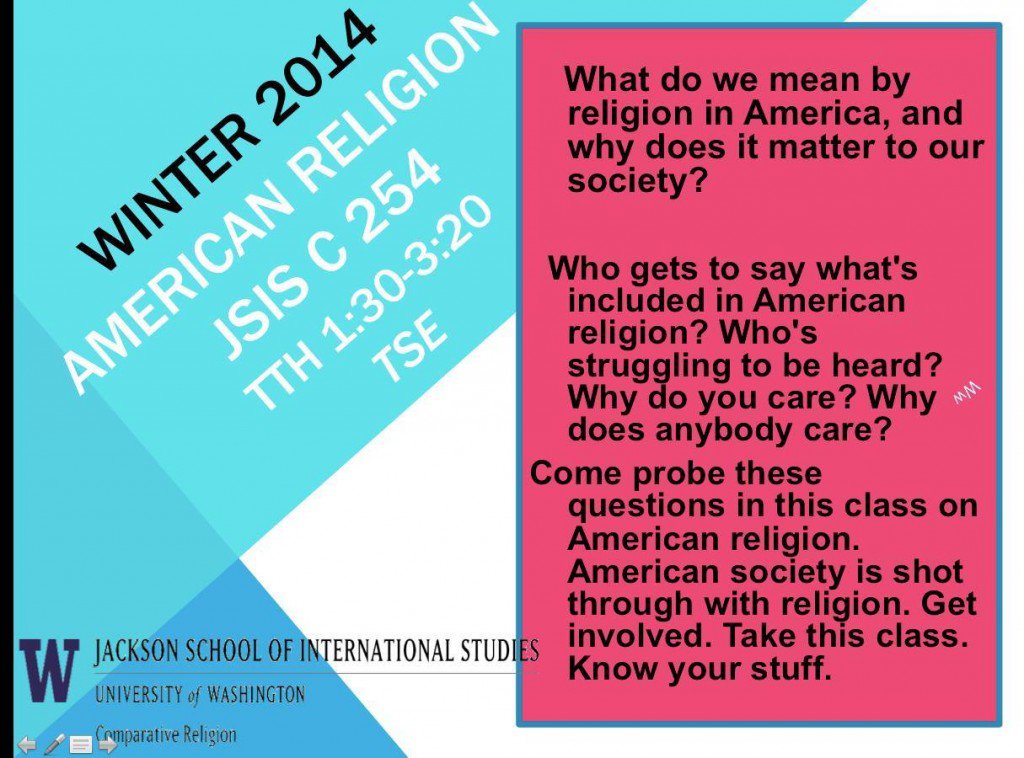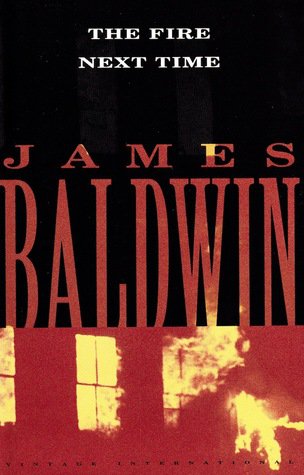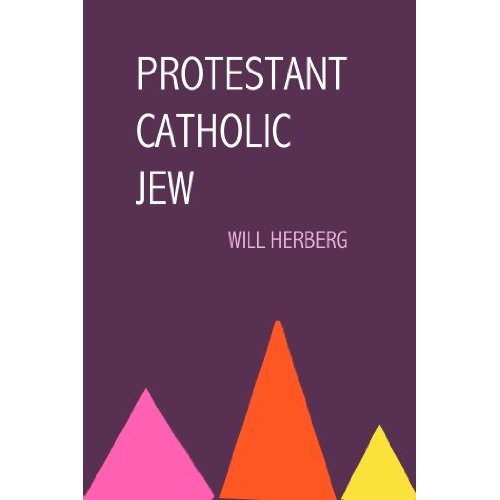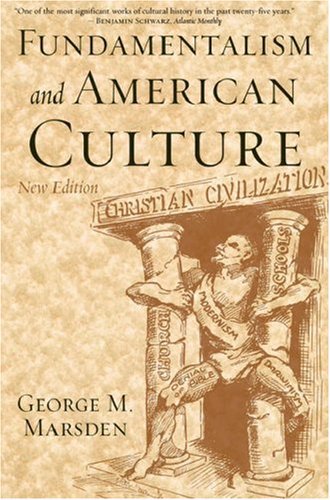
Those of you who are students at the University of Washington should consider enrolling in this class next quarter. If you know students, suggest that they register. This will be an eye-opening class. Here’s are some of the problems you will get to explore:
This course asks, “What do we mean by religion in America, and why does it matter to our society?” We will explore this question by looking at the different groups that have migrated to America and shaped its institutions and cultures. Beginning with American Protestantism, we will first examine why some strands of English Protestant theology shaped American culture. We will then turn to some groups that have been historically excluded from this consensus and how they have in turn contributed to newer understandings of American religion. Our course will conclude with an exploration of American Protestant fundamentalism. The goal of this course is to explore together how religion in America has shaped America as a whole, suggesting that we should care about American religion regardless of whatever religious background from which we come.
The main readings for the class are as follows:

Baldwin, James. 1963/1992. The Fire Next Time.
A national bestseller when it first appeared in 1963, The Fire Next Time galvanized the nation and gave passionate voice to the emerging civil rights movement. At once a powerful evocation of James Baldwin’s early life in Harlem and a disturbing examination of the consequences of racial injustice, the book is an intensely personal and provocative document. It consists of two “letters,” written on the occasion of the centennial of the Emancipation Proclamation, that exhort Americans, both black and white, to attack the terrible legacy of racism. Described by The New York Times Book Review as “sermon, ultimatum, confession, deposition, testament, and chronicle…all presented in searing, brilliant prose,” The Fire Next Time stands as a classic of our literature.

Fischer, David Hackett. 1989. Albion’s Seed: Four British Folkways in America.

Herberg, Will.1983. Protestant-Catholic-Jew.
n Protestant-Catholic-Jew Will Herberg has written the most fascinating essay on the religious sociology of America that has appeared in decades. He has digested all the relevant historical, sociological and other analytical studies, but the product is no mere summary of previous findings. He has made these findings the basis of a new and creative approach to the American scene. It throws as much light on American society as a whole as it does on the peculiarly religious aspects of American life. Mr. Herberg. . . illumines many facets of the American reality, and each chapter presents surprising, and yet very compelling, theses about the religious life of this country. Of all these perhaps the most telling is his thesis that America is not so much a melting pot as three fairly separate melting pots.

Marsden, George M. 2007. Fundamentalism and American Culture.
Many American’s today are taking note of the surprisingly strong political force that is the religious right. Controversial decisions by the government are met with hundreds of lobbyists, millions of dollars of advertising spending, and a powerful grassroots response. How has the fundamentalist movement managed to resist the pressures of the scientific community and the draw of modern popular culture to hold on to their ultra-conservative Christian views? Understanding the movement’s history is key to answering this question. Fundamentalism and American Culture has long been considered a classic in religious history, and to this day remains unsurpassed. Now available in a new edition, this highly regarded analysis takes us through the full history of the origin and direction of one of America’s most influential religious movements.
The common thread between all these books are problems surrounding race and fundamentalism. It will be interesting to see whether the Kennedy moment in Houston (1960) before fundamentalist preachers will become one topic of discussion.
The speech (listen to it here) is celebrated as the entrance of Catholics into the political mainstream. Stephen L. Carter in God’s Name in Vain: The Wrongs and Rights of Religion in Politics points to a more sinister side, with a side order of race relations and fundamentalism, of the whole episode:
“[While talking about elections when evangelical voters turned against the Republicans and ruined their Southern strategy] Or not since 1960, when candidate John F. Kennedy rushed to a convention of evangelical preachers in Houston to assure them that he, a Roman Catholic, would not do the Pope’s bidding if elected. In our celebration of the Kennedy moment, we tend to forget that the bidding that worried the evangelicals most was the Catholic Church’s forceful opposition to racial segregation.”











